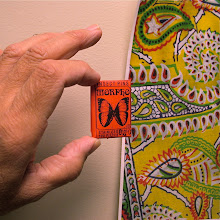
Cruelty is a mystery, and the waste of pain. But if we describe a world to compass these things, a world that is a long, brute game, then we bump against another mystery: the inrush of power and light, the canary that sings on the skull. Unless all ages and races of men have been deluded by the same mass hypnotist (who?), there seems to be such a thing as beauty, a grace wholly gratuitous. About five years ago I saw a mockingbird make a straight vertical descent from the roof-gutter of a four-story building. It was an act as careless and spontaneous as the curl of a stem or the kindling of a star.
The mockingbird took a single step into the air and dropped. His wings were still folded against his sides as though he were singing from a limb and not falling, accelerating thirty-two feet per second per second, through empty air. Just a breath before he would have been dashed to the ground, he unfurled his wings with exact, deliberate care, revealing the broad bars of white, spread his elegant, white-banded tail, and so floated onto the grass. I had just rounded a corner when his insouciant step caught my eye; there was no one else in sight. The fact of his free fall was like the old philosophical conundrum about the tree that falls in the forest. The answer must be, I think, that beauty and grace are performed whether or not we will or sense them. The least we can do is try to be there.
At two o'clock this morning I couldn't sleep so I took advantage of my insomnia (a trick that all long time victims of sleepless nights eventually learn) & made use of the time to e-mail a friend in Japan. While my keyboard softly clicked away, I could hear, somewhere on the night-quiet street, a solitary mockingbird singing his little heart out; endlessly repeating his appropriated cyclical melodies, trying to find a mate.
He's still at it.










